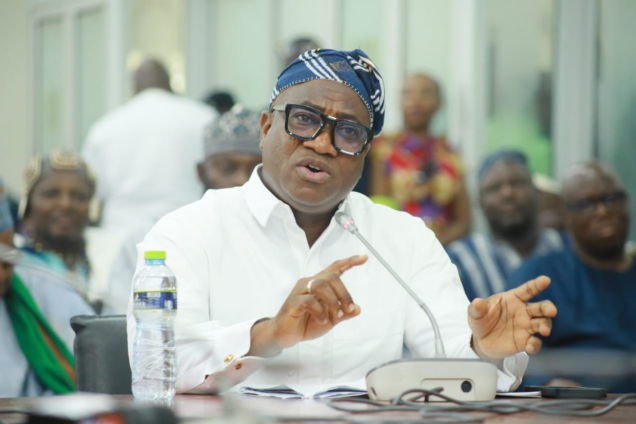
Audio By Carbonatix
Dr. Ibrahim Murtala Muhammed, Minister of Environment, Science and Technology, has stated that Ghana’s proposed ban on plastics will be a gradual process to ensure a smooth transition to sustainable alternatives.
Dr. Muhammed emphasised that an immediate ban could have adverse effects, as viable options must be easily accessible.
The Minister said this at the Environmental Sustainability Summit organised by the Business and Financial Times in Accra.
The event was on the theme: “Ending Plastic Waste in Ghana: A Sustainable Future for all.”
The event featured a high-level panel discussion, and impactful case studies on climate financing, green energy transitions, circular economies and, corporate sustainability practices.
The Minister said, “You do not just ban plastics overnight, because you are dealing with people’s livelihoods and habits.”
He said as a country “We must first provide affordable and practical alternatives before enforcing restrictions.”
Ghana generates between 840,000 and 1.1 million tonnes of plastic waste annually with over 50 per cent uncollected and only 9 per cent recycled.
Dr Muhammed said that reckless disposal of waste clogged drains, polluted water bodies, and posed severe health risk, costing the economy $6 billion yearly which is 11 per cent of Gross Domestic Products (GDP).
He said Ghana was currently studying successful circular economies on the African continent, notably Rwanda and Kenya where plastic bans were implemented alongside robust recycling systems.
He revealed that the government circular economic strategy would prioritise taxes and regulations, promote local alternatives and extend producer responsibility.
The Minister called for a change in habits from Ghanaians, citing real-life situations where traders resisting reusable containers due to convenience.
Dr. Godwin Acquaye, the Chief Executive Officer for Business and Financial Times, highlighted the impact of plastics notably remnants of plastics being found in the reproductive organs of human beings.
“So, there was research done outside the country, and they saw microplastics in the testicles of those who were examined. So reproductive organs and fluids have plastics in them. So, the questions are that what children are we giving birth to?, “he said.
He urged the government to remain committed to the circular plastics roadmap and other international commitments such as the one advocated by the Global Plastic Action.
He called for an effective collaboration between state institutions and the private sector to promote Ghana’s circular economic initiatives.
Latest Stories
-
Ayawaso East by-election: ‘Certified International Election Observer’ Koku Anyidoho applauds voting arrangements
14 minutes -
Today’s Front Pages: Tuesday, March 3, 2026
1 hour -
Gov’t to issue long-dated domestic bonds following expiration of DDEP restrictions – Dep Finance Minister
1 hour -
From communities to classrooms: Hearing care for all children-2026
1 hour -
Buffer Stock CEO tours schools and warehouses in Eastern Region
1 hour -
Are we tying down growth? – Finance professor flags on gold reserve policy
2 hours -
Lands Minister endorses Petroleum Hub Project to generate sustainable employment opportunities
2 hours -
Government to build 600 new basic schools to end ‘Schools Under Trees’
2 hours -
Kumasi Mayor vows to keep Kejetia Market free from highly inflammable materials
2 hours -
Gov’t to open enrolment for affordable homes under National Homeownership Fund
2 hours -
Cashew farmers remind Mahama to fulfil promise to establish Cashew Development Board
3 hours -
National Ambulance Service moves to acquire 400 new ambulances and 500 motorbikes
3 hours -
Gov’t urges Ghanaian pilgrims to defer travel over Middle East tensions
3 hours -
Ghana to create the largest converging centre for mineral discussions
3 hours -
11 foreigners face trial over counterfeit dollar operation in Ga South
3 hours

